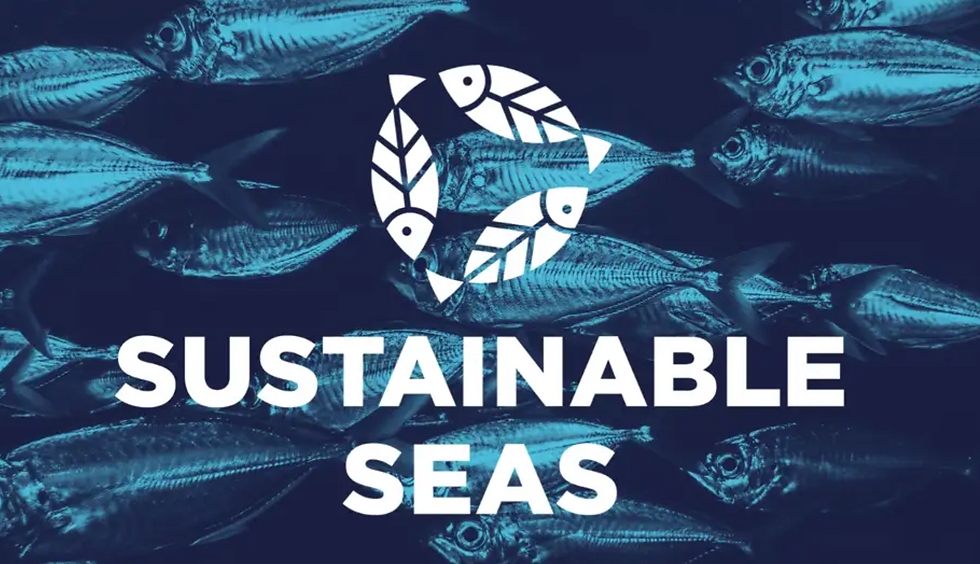SeaKeepers; Yachts for Science
- SeastainableYachting

- Dec 7, 2020
- 3 min read
'Fighting the Plastic Problem with Seakeepers...'

This week our guest blog post is written by The International SeaKeepers Society, explaining their role of supporting marine science and conservation by utilising private yachts...
The world’s oceans are under invasion by a virtually indestructible enemy – plastic. Every year, an estimated 8 to 12 million tons of plastic make their way into the sea. From coastlines to the middle of the sea – floating along the tops of waves and hidden in the deepest depths – it’s there in its many forms. The International SeaKeepers Society and, Florida International University College of Arts, Education, and Science (CASE) have joined forces to combat this problem.
Founded in Monaco in 1998, The International SeaKeepers Society began as a group of yacht owners who realized they shared more than just a passion for yachting and were also concerned about the deteriorating condition of the world’s oceans. They wanted to advance oceanographic research with the help of the yachting community – in a way that would utilize resources they already had (vessels) to support ocean research. Because the yachting and sailing communities are constantly mobile their unique capabilities for at-sea research and education are extremely valuable.

Today SeaKeepers’ mission is focused on the DISCOVERY Yacht Program which is comprised of scientist-led expedition’s, citizen science trips, educational outreach events and community engagement activities. Programming is led by Tony Gilbert who works with experts in the marine science and oceanography fields along with vessel owners, crew, and marine professionals to activate yachts in support of all areas of programming. Whether you donate your vessel as a floating classroom or you tow a net during your next voyage, the positive impact and worthwhile outcomes count towards making a critical difference.
Since 2017 SeaKeepers has partnered with Florida International University (FIU) on shark and ray research, and more recently developed the S.A.R.A.H Initiative (Sample, Aggregate, Return, Analyze and Help) in 2019, a program to address plastics pollution in our oceans. The aim of the S.A.R.A.H Initiative is to collect water samples for analysis of plastics contamination. SeaKeepers along with Florida International University have designed a kit which yachts can now independently use to collect samples while they travel around the globe.
The S.A.R.A.H. Initiative is part of SeaKeepers’ Citizen Science programming. Citizen Science offers a valuable opportunity for vessel owners to get involved in smaller-scale marine research initiatives. These expeditions do not require scientists to be on board, and permit vessel owners and crew to participate in ongoing research projects which depend on the participation of non-scientists.
The project engages the yachting community by providing comprehensive onboard kits to allow yacht crews and owners to conduct plankton survey-style transects to describe and quantify the presence of marine microplastics. Microplastics are extremely small fragments (smaller than 5 millimeters) of plastic debris, resulting from disposal and breakdown of consumer products and waste. Marine wildlife often ingests microplastics as they filter seawater. This poses a risk to both marine animals and eventually humans since the toxic chemicals are passed up the food chain.

From captains to crew to yacht owners and their families, participating in this program with no prior knowledge of instrument deployment or marine science is not an issue, and collecting scientific data has never been easier. “Our relationship with SeaKeepers opens up access to areas of the ocean our researchers wouldn’t normally have access to because of the cost,” said Dr. Mark Bond, an FIU marine scientist and lead on the SeaKeepers partnership. “This means we can spread our research dollars further and get more data to better map the type and scale of contamination.”
SeaKeepers has collected samples off the East coast of the U.S., the waters en route from French Polynesia to Australia, the Florida Straits between Florida and Cuba, all along the East Coast of Australia, the waters off the Pacific side of Costa Rica as well as en route from there to Florida, and finally off, the southern and eastern coasts of France and Spain, respectively. More locations are soon to be added.
“Ultimately I’d like to see us expand to have a presence in every yacht hub around the world,” says SeaKeepers Chairman, Jay Wade. “Florida is the epicenter of the yacht industry, but the health of the oceans is a global issue. It’s critical to spread our message of research, educate, protect and restore to all cultures and all oceans if we’re going to make the biggest impact.”
Data can be the foundation for future policy decisions that can ensure the ocean is home to more marine life and less plastic. To become a SeaKeeper and participate in a S.A.R.A.H. Initiative, contact Tony Gilbert via email at Tony@SeaKeepers.org or by telephone at 305.281.1497








Comments